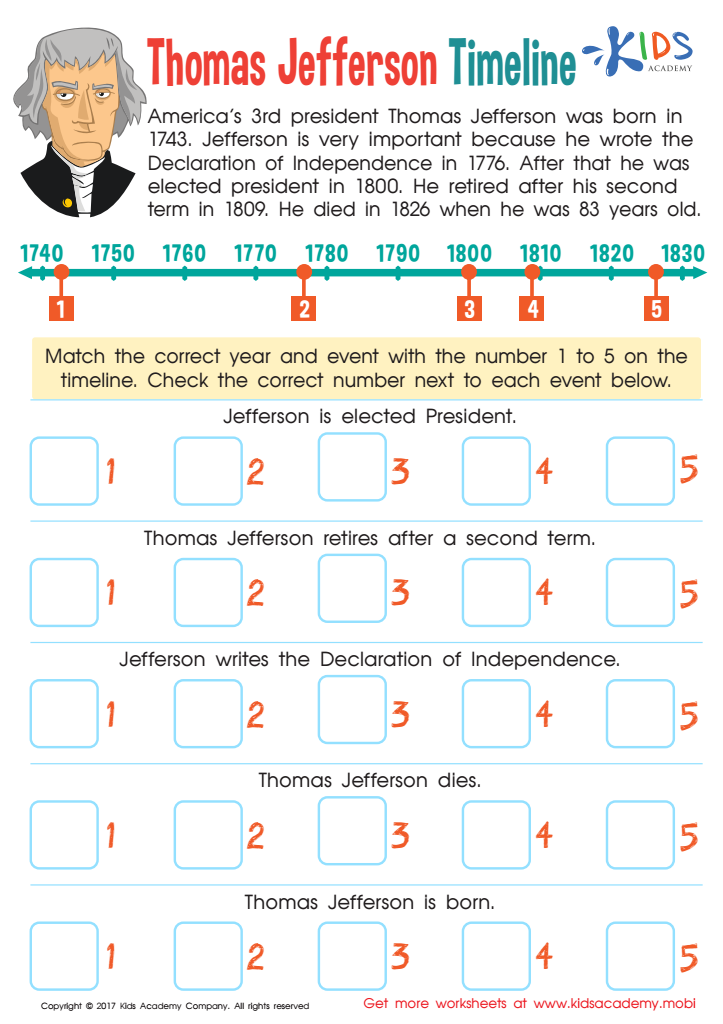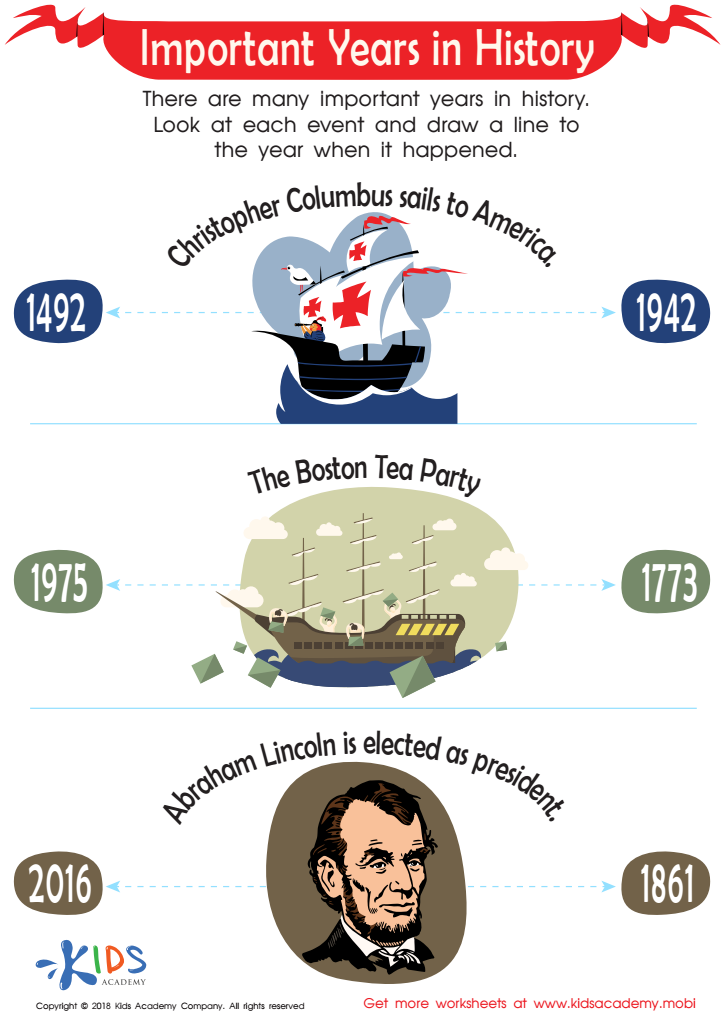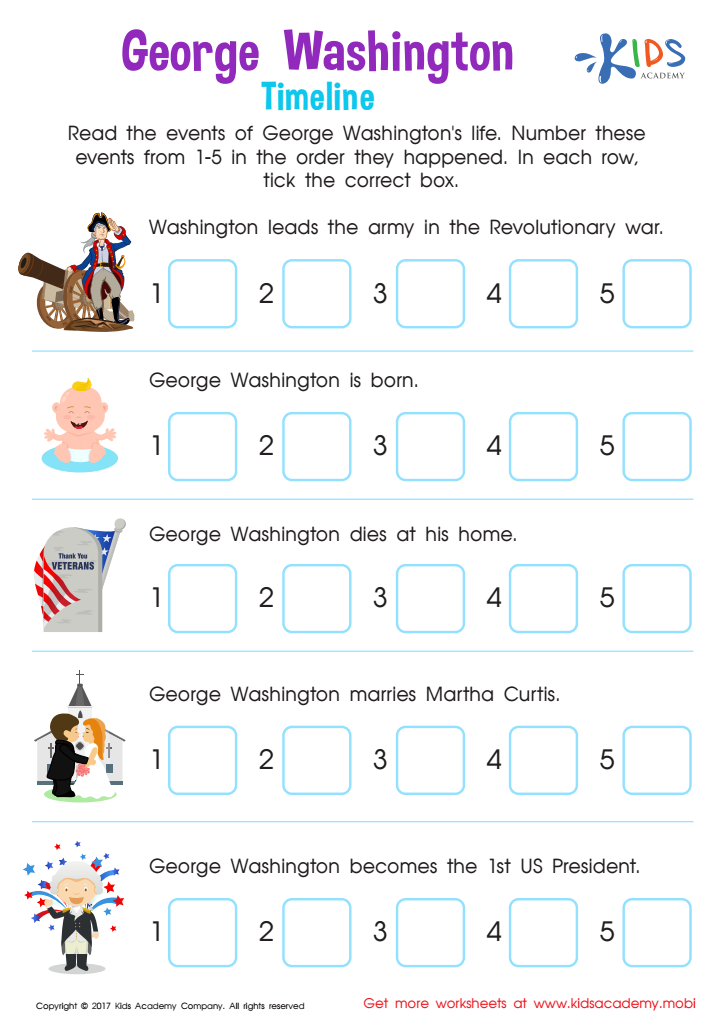Event sequencing History Worksheets for Ages 4-9
3 filtered results
-
From - To
Enhance your child’s understanding of historical events with our Event Sequencing History Worksheets for Ages 4-9. These engaging activities are designed to develop critical thinking and comprehension skills as children learn to order events chronologically. Focusing on key historical milestones, the worksheets encourage young learners to explore and sequence historical events through fun visuals and interactive tasks. Perfect for both classroom and home settings, these activities aim to bolster history knowledge while fostering an early appreciation for the past. Boost your child’s historical literacy and sequencing skills with our expertly crafted materials tailored to young minds.


Thomas Jefferson Timeline Worksheet


Important Years in History Worksheet


George Washington Timeline Worksheet
Event sequencing in history is crucial for children aged 4-9 because it builds foundational cognitive and critical thinking skills. This age is pivotal for children’s cognitive development, as they transition from simplistic understanding to more structured, logical thought processes. Understanding historical events in sequence fosters a child's ability to grasp chronological order—a critical aspect of logical reasoning.
When children are taught to sequence historical events, they learn to recognize cause-and-effect relationships. This might involve understanding why certain historical events led to subsequent ones, thereby encouraging deeper empathy and cultural awareness. For instance, they can learn how inventions, explorers, or social movements influenced changes over time.
Furthermore, event sequencing enhances a child’s ability to follow narratives, which is beneficial not only in history but inclusively in literacy and general education. Children develop important reading comprehension skills, such as understanding plot and distinguishing between beginning, middle, and end parts of stories. These competencies are essential for academic success across all areas of learning.
Parents and teachers should care about event sequencing in history because it equips children with essential analytical tools. These tools help children navigate not just academics, but also their social world by understanding how past events influence present circumstances. This holistic developmental approach ensures they grow as informed, critically-thinking adults.
 Assign to My Students
Assign to My Students




















